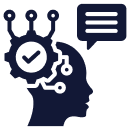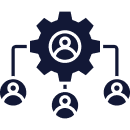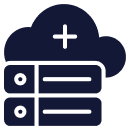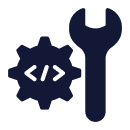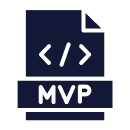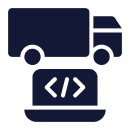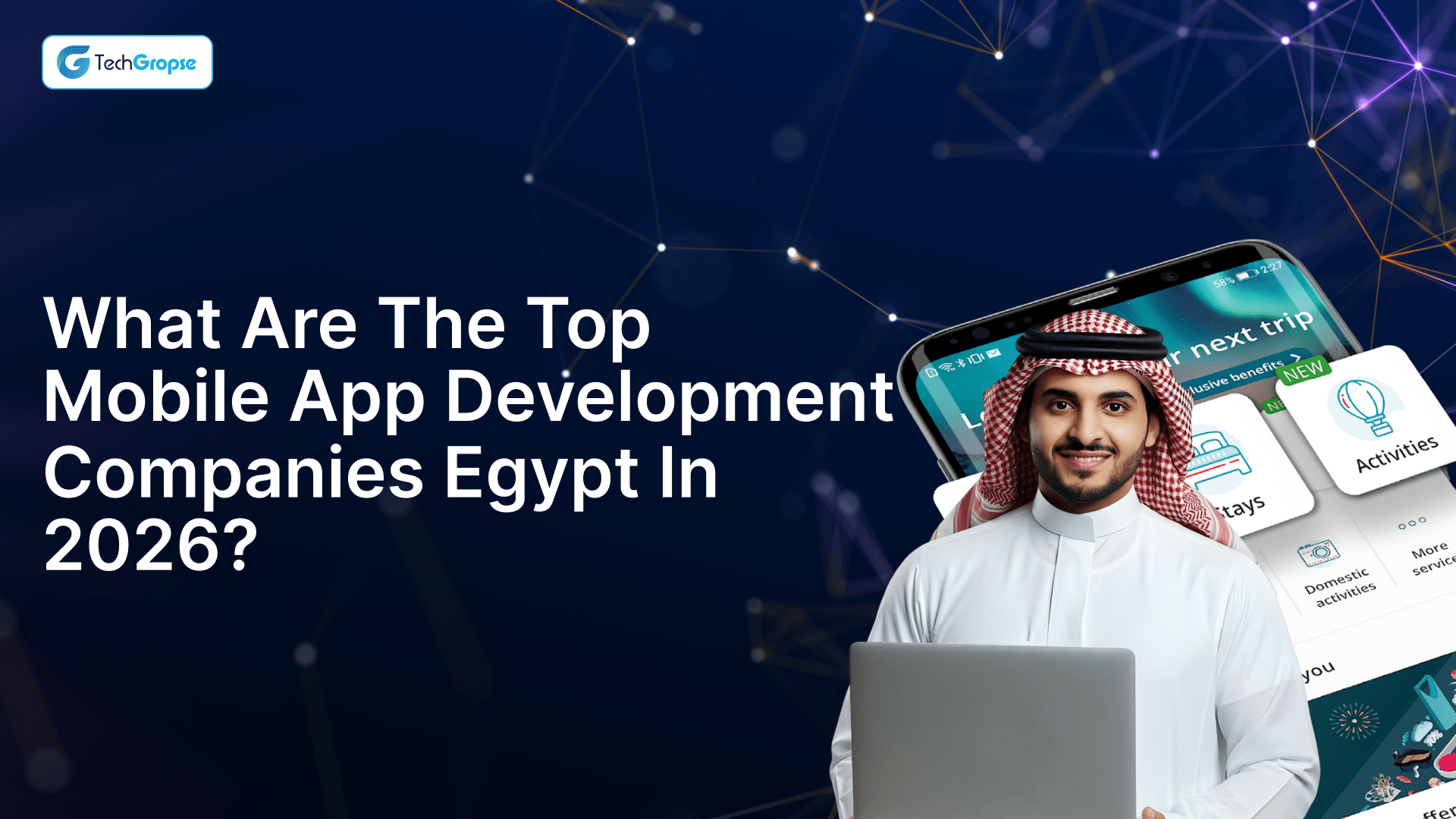Summary: Why Digital Twin Technology Matters for Entrepreneurs? Entrepreneurship is all about bringing out the innovation and Digital Twin Technology is becoming a most exciting tool for mobile entrepreneurs in today’s fast world. A recent report predicts the global digital twin market will grow at a CAGR of 37% from 2024 to 2029, Proving it is going to reshape entrepreneurship not in the future but now. But you may think how do we implement this powerful tool to your business, and this blog is exactly what it is about – exploring what digital twin technology is, real-world applications, benefits, challenges, comparison of technologies, and the best platforms to start with.
But what exactly is Digital Twin Technology?
Digital twin technology is nothing but having the replica of your product, process, or business that allows to test, predict outcomes and improve performance all without the high cost that is required as of the real word.
From manufacturing floors to mobile apps, from healthcare to smart home solutions, digital twinning technology is transforming how products are designed, tested, and maintained.
How Digital Twin Technology Helps Mobile Entrepreneurs?
Digital twin technologies are real-world objects or systems that are represented in virtual. These virtual models are used to represent performance, identity, inefficiencies, and design solutions digitally to improve their physical counterparts.
It helps mobile entrepreneurs with:
- Faster Product Testing
- Lesser Development Costs
- Improved Customer Experience
- Better Decision-Making
For instance, a mobile app entrepreneur can optimize server load, user behavior, and network issues before launching an app update, saving both time and money.
Digital Twin Technology: Overview of Use Cases
Digital twin technology is not limited to a single industry — it extends innovation applicable across manufacturing, healthcare, construction, energy, and mobile solutions.
Digital twin technology in manufacturing enables real-time simulation of production lines to prevent costly errors.
Digital twin technology in healthcare allows patient-specific simulations for optimized treatment.
Digital twin technology in construction provides virtual modeling before actual construction begins.
Digital twin technology for smart factories ensures efficiency and predictive maintenance.
Comparison of Digital Twin Technologies for System Engineering
Here’s how choosing the right digital twin technology solution can be efficient for entrepreneurs and engineers.
| Technology | Focus Area | Key Strength | Best For |
|---|---|---|---|
| Siemens Digital Twin Technology | Smart factories, Manufacturing | predictive analytics, IoT integration, Lifecycle management | Industrial applications |
| GE Digital Twin Technology | Heavy machinery, Energy | AI optimization, Real-time monitoring | Industrial IoT |
| Dassault Systèmes | Aerospace, Construction | Lifecycle analysis, Advanced simulation | Complex engineering |
| PTC ThingWorx | Product development, IoT | Real-time updates, Custom twin creation | IoT startups |
| ANSYS Twin Builder | R&D, Engineering | High-fidelity simulation | Product framework |
| IBM Digital Twin | Industrial processes | AI insights, analytics | Enterprise solutions |
| Bentley Systems | Infrastructure, construction | Asset modeling, lifecycle tracking | Construction management |
| Altair HyperWorks | Simulation | Advanced analytics | Engineering optimization |
Why Digital Twin Technology Is Essential for Mobile Entrepreneurs?

Know why Digital Twin Technology is essential for mobile entrepreneurs.
Speeds Innovation
Digital Twin Technology helps you test concepts without a costly framework. With real-time monitoring, process optimization, and predictive decision-making, Digital Twin Technology is a one-stop solution to fast-track innovation and improve efficiency.
Enables Data-Driven Decisions
Digital Twin Technology enables real-time insights to guide strategic plans. With the systematic integration of historical and ongoing analytics Digital Twin Technology allows mobile entrepreneurs to take evidence-based decision making.
Reduces Costs
Digital Twin Technology saves time and cost consuming trial and error during production development. Breaking the boundary of traditional product testing, Digital Twin Technology stimulates virtual outcomes, affordable and budget friendly.
Minimizes Risk
To reshape the operational resilience, Digital Twin Technology comes with better compliance assurance and risk mitigation approach. It constantly churns the real-world scenario to predict potential risks in operational workflow and infrastructure stability.
Supports Scalability
Evaluating the system performance under increasing workloads, Digital Twin Technology offers massive support to digital infrastructure. This will not only elevate the confidentiality scale but also streamlines the budget.
Top 6 Applications of Digital Twin Technology in Diverse Industries

Digital Twin Technology in Manufacturing
Digital twin technology for manufacturing enables prompt and effective use in production lines, detecting faults, and scale up efficiency.
Entrepreneur Tip: Mobile app developers can simulate server load and UI interactions before release.
Digital Twin Technology for Smart Factories
Digital Twin Technology for Smart Factories allows to perform predictive maintenance and optimize production using IoT- enabled digital twin systems.
Entrepreneur Tip: IoT product developers can test device performance without physical prototypes.
Digital Twin Technology in Construction
Digital Twin Technology in Construction allows the visualization of the building models for architects and engineers to test the design effectiveness.
Entrepreneur Tip: AR-based mobile apps can create virtual property tours for real estate entrepreneurs.
Digital Twin Technology in Healthcare
Digital Twin Technology in Healthcare helps healthcare practitioners to use patient-specific digital twins for improved patient care. Healthcare providers use patient-specific digital twins for treatment simulation.
Entrepreneur Tip: Healthtech entrepreneurs can offer personalized care apps powered by twin models.
Digital Twin Technology in Oil and Gas
Digital Twin Technology in Oil and Gas enables forecasting maintenance to avoid downtime and reduce high costs. Entrepreneur Tip: Monitoring app developers can integrate twin simulations for real-time analytics.
3D Digital Twin Technology
3D Digital Twin Technology provides virtual reality technology that gives users the impression of being fully involved in a stimulated modeling environment causing improved training, design and education.
Entrepreneur Tip: AR/VR entrepreneurs could use 3D twins for gaming and simulations.
| Application Area | Description | Entrepreneur Tip |
|---|---|---|
| Manufacturing | Enables prompt and efficient use in production lines, detects faults early, and scales up operational efficiency. | Mobile app developers can simulate server load and UI interactions before release. |
| Smart Factories | Uses IoT-enabled systems for predictive maintenance and production optimization, enhancing overall factory performance. | IoT product developers can test device performance without creating physical prototypes. |
| Construction | Allows architects and engineers to visualize and test building models for design effectiveness and performance. | AR-based mobile apps can create virtual property tours for real estate entrepreneurs. |
| Healthcare | Empowers healthcare practitioners to create patient-specific digital twins for accurate diagnosis and treatment simulations. | Healthtech entrepreneurs can offer personalized care apps powered by twin models. |
| Oil and Gas | Forecasts maintenance needs, minimizes downtime, and reduces operational costs through real-time system monitoring. | Monitoring app developers can integrate twin simulations for real-time analytics. |
| 3D Digital Twin | Provides immersive virtual environments for training, design, and educational simulations using advanced VR technology. | AR/VR entrepreneurs can use 3D twins for gaming, simulations, and virtual experiences. |
Major Benefits of Digital Twin Technology in 2025

Product Design & Innovation
Digital twins are powerful instruments for promoting product design and innovation.
Businesses can make virtual models and test the new design in different scenarios and situations without facing the real launch.
Predictive Maintenance
Digital twins are providing the path for revolutionizing predictive maintenance. Which is equally revolutionizing the business processes simultaneously. Use of digital twins can predict the downtime even before the actual launch.
Enhanced Operational Efficiency
Enabling IoT for real-time system monitoring lowers the operational expenses and breakdowns with the help of early detections. These proactive maintenance methods can simulate and increase the overall dependability of business processes.
Increased Energy Efficiency
Digital twins are an incredible instrument for increasing energy utilization, which is essential for companies trying to cut expenses and maximize energy utilization. By modeling real-world systems, digital twins allow businesses to find errors and make changes that boost energy use without affecting actual processes.
Significant Check-Boxes of Digital Twin Technology
- Software, hardware and integration costs are significant.
- Data privacy to be enhanced, sensitive operational and customer data must be secured.
- Has integration complexity and requires compatibility with existing infrastructure.
- Specialized expertise is essential. This would cause the skill gap.
Solution: Entrepreneurs should select the right platform and partners to use a structured approach.
Cost Breakdown to Adopt Digital Twin Technology
| Cost Component | Description | Estimated Cost Range (USD) |
|---|---|---|
| 1. Data Collection Infrastructure | Includes IoT sensors, edge devices, and connectivity solutions to gather real-time data from physical assets. | $10,000 – $100,000+ (depending on number and complexity of assets) |
| 2. Software & Platform Licensing | Covers digital twin software tools, cloud services, and integration platforms like Azure Digital Twins or Siemens MindSphere. | $5,000 – $50,000 annually |
| 3. System Integration & Customization | Cost of integrating digital twin software with existing systems (ERP, MES, PLM) and customizing models for specific operations. | $20,000 – $150,000+ |
| 4. Data Analytics & AI Integration | Implementation of analytics engines, AI algorithms, and predictive maintenance modules. | $10,000 – $80,000 |
| 5. 3D Modeling & Simulation Tools | Cost of building digital models, virtual simulations, and 3D visualizations of assets or processes. | $5,000 – $60,000 |
| 6. Cloud Storage & Computing | Ongoing costs for data hosting, storage, and processing in the cloud. | $2,000 – $20,000 annually |
| 7. Training & Skill Development | Employee training for operating and maintaining digital twin systems. | $5,000 – $15,000 |
| 8. Maintenance & Upgrades | Regular system updates, model recalibrations, and technical support. | $3,000 – $25,000 annually |
How Can TechGropse Help You Get Started with Digital Twin Technology
With 10+ years experience in software business, TechGropse has worked on 3000+ projects, making a 450+ satisfied client base across 25+ business locations in the globe.
Our AI architects and software developers can help you adopt Digital Twin Technology in 4 major steps.
Step 1: Firstly define the objectives, Identify processes/products to simulate.
Step 2: It is equally important to choose the right platform, so consider Siemens, GE, or PTC.
Step 3: Integrating IoT & analytics is crucial to ensure real-time data goes into your twin.
Step 4: Simulating and optimizing is needed for test scenarios before launch.
FAQs
Digital twin technologies are systems or real-world objects that are represented in virtual environments.
Decreased costs and downtime, Enhanced innovation, Data-driven decisions and Scalable business models are the few benefits of Digital Twin Technology.
In manufacturing, Digital Twin Technology helps in ease production by simulating the production process and makes it much more efficient.
Integration cost, data privacy issue, integration complexity, and skill gap are some of the major challenges of Digital Twin Technology.
Industries such as manufacturing, healthcare, construction, aerospace, energy, automotive, and smart cities widely use digital twins to improve efficiency and decision-making.
Simulation models a process under predefined conditions, while a digital twin continuously updates in real time using live data, making it dynamic and adaptive.
Key enablers include IoT sensors, cloud computing, artificial intelligence (AI), machine learning (ML), big data analytics, and 3D modeling software.
It allows them to simulate user interactions, server loads, and feature performance before deployment — reducing errors, costs, and risks during app development.
Costs vary by scale. Small-scale or cloud-based solutions can start around $50,000, while enterprise-level implementations may exceed $1 million.
Yes, digital twins can be integrated with ERP, CRM, MES, or other enterprise systems to ensure seamless data flow and unified operations.
Digital twins will evolve with AI, AR/VR, and blockchain to create more intelligent, autonomous, and immersive systems — powering smart cities, metaverse projects, and self-optimizing industries.



